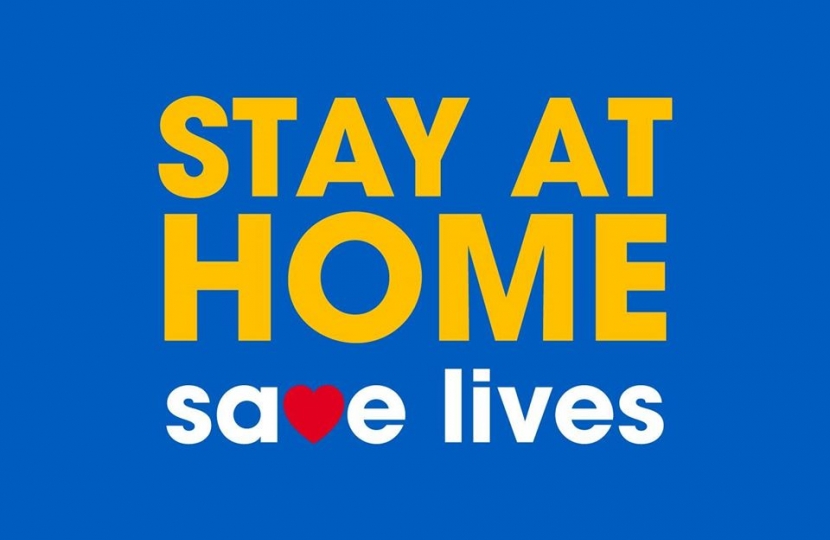
Stay at Home
COVID-19 is the illness seen in people infected with a new strain of coronavirus not previously seen in humans. The evidence shows us that the vast majority of people who get this virus have relatively mild symptoms and make a full recovery. But in several cases, the virus can cause more severe symptoms. This is particularly true for people with a weakened immune system, for older people and for those with long term conditions like diabetes, cancer and chronic lung disease.
The Virus is highly contagious and potentially deadly. As of the 1st of April, there are 652 cases in Hampshire alone, with 2,352 deaths across the whole of the UK. It is for these set of reasons that we are taking the pandemic incredibly seriously.
The single most important action we can all take, in fighting coronavirus, is to stay at home in order to protect the NHS and save lives. When we reduce our day-to-day contact with other people, we will reduce the spread of the infection. That is why the government has introduced three new measures.
You should only leave the house for very limited purposes:
- Shopping for basic necessities, for example food and medicine, which must be as infrequent as possible
- One form of exercise a day, for example a run, walk, or cycle - alone or with members of your household
- Any medical need, including to donate blood, avoid or escape risk of injury or harm, or to provide care or to help a vulnerable person
- Travelling for work purposes, but only where you cannot work from home
Every person in the UK must comply with these new measures, which came into effect on Monday 23 March. The relevant authorities, including the police, have been given the powers to enforce them, including through fines and dispersing gatherings. If you display any symptoms you must self-isolate for 7 days if you live alone and for 14 days if you live with others.
The Government has reduced these measures for the safety and protection of all members of society. It is through these sticking to these measures that we will eventually beat the virus and return to normality.
2.1 When Should I Self-Isolate?
- If you have a high temperature or new, continuous cough
- You must self-isolate for 7 days if you live alone
- You must all self-isolate for 14 days if you live with others (if someone gets symptoms during isolation all householders must remain symptom free for 7 days even if that means isolating for more than 14 days)
Self-isolation will save lives - it's important you follow the guidance if you're affected.
2.2 Why Should I Self-Isolate?
If you have a high temperature or new continuous cough you must self-isolate for 7 days, if you live alone. If you live with others you must all self-isolate for 14 days.
Self-isolation will save lives - and while 90% of people will recover from this virus - some will get seriously ill and it is these people we need to protect.
After seven days, if you feel better and no longer have a high temperature, you can return to your normal routine.
2.3 How Should I Look After Myself When I Self-Isolate?
• Get plenty of rest
• Drink plenty of water (fluids)
• Eat as healthily as you can
• To reduce pain and fever take paracetamol (if you use other mediation get in touch with your care provider)
• Keep in contact with friends and family by phone, video and online
2.4 Can I Go To The Theatre, Cinema, The Pub, A Restaurant, Clubs …
Many theatres, pubs and restaurants will now be closed. We must all do what we can to stop the spread of the virus. The Government has changed the law so pubs and restaurants without a licence can offer take away services. Social-distancing, keeping physically distant from others, is critically important in saving lives.
The Government guide to social distancing can be found here: https://www.gov.uk/government/publications/covid-19-guidance-on-social-distancing-and-for-vulnerable-people/guidance-on-social-distancing-for-everyone-in-the-uk-and-protecting-older-people-and-vulnerable-adults
